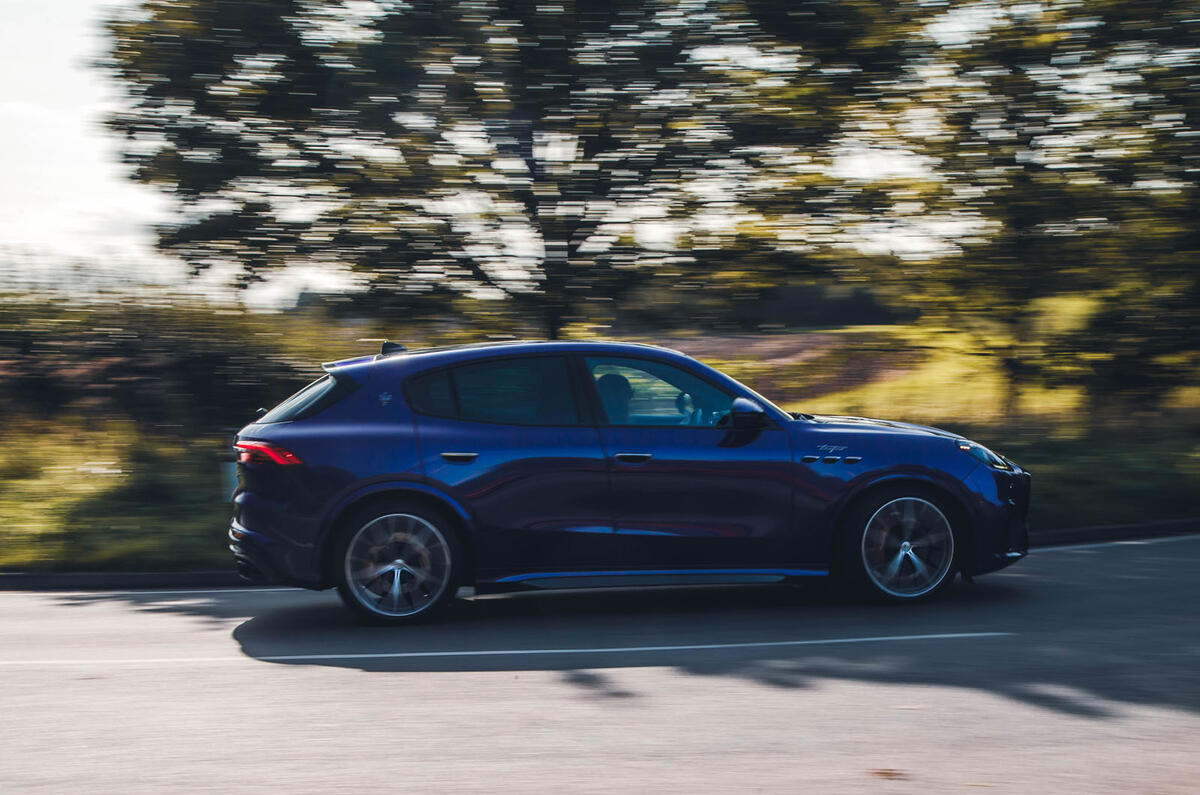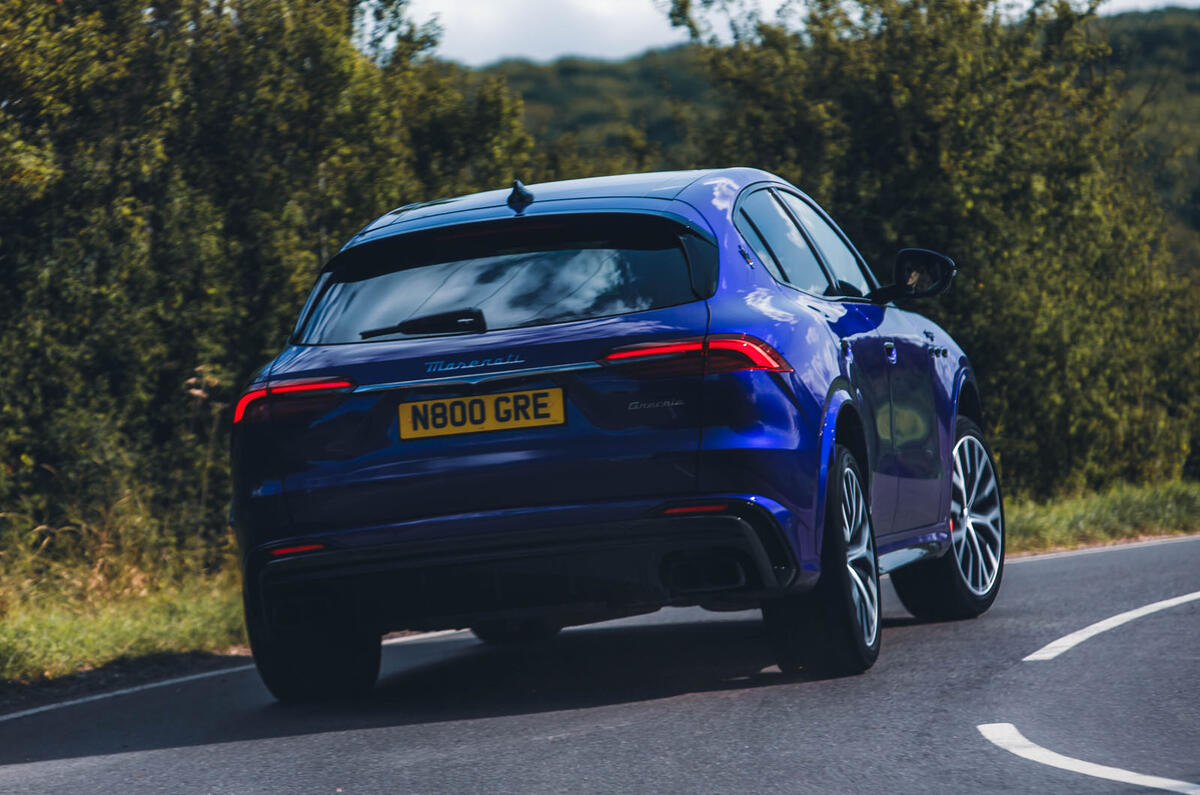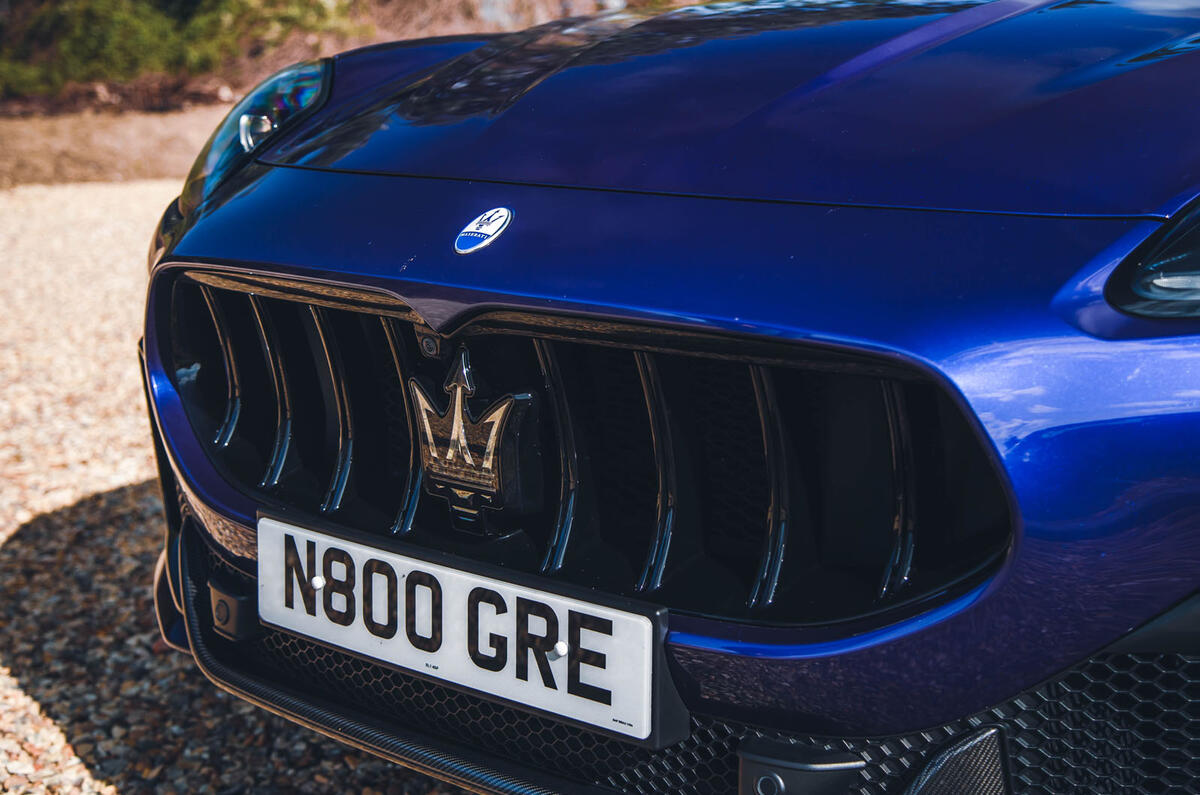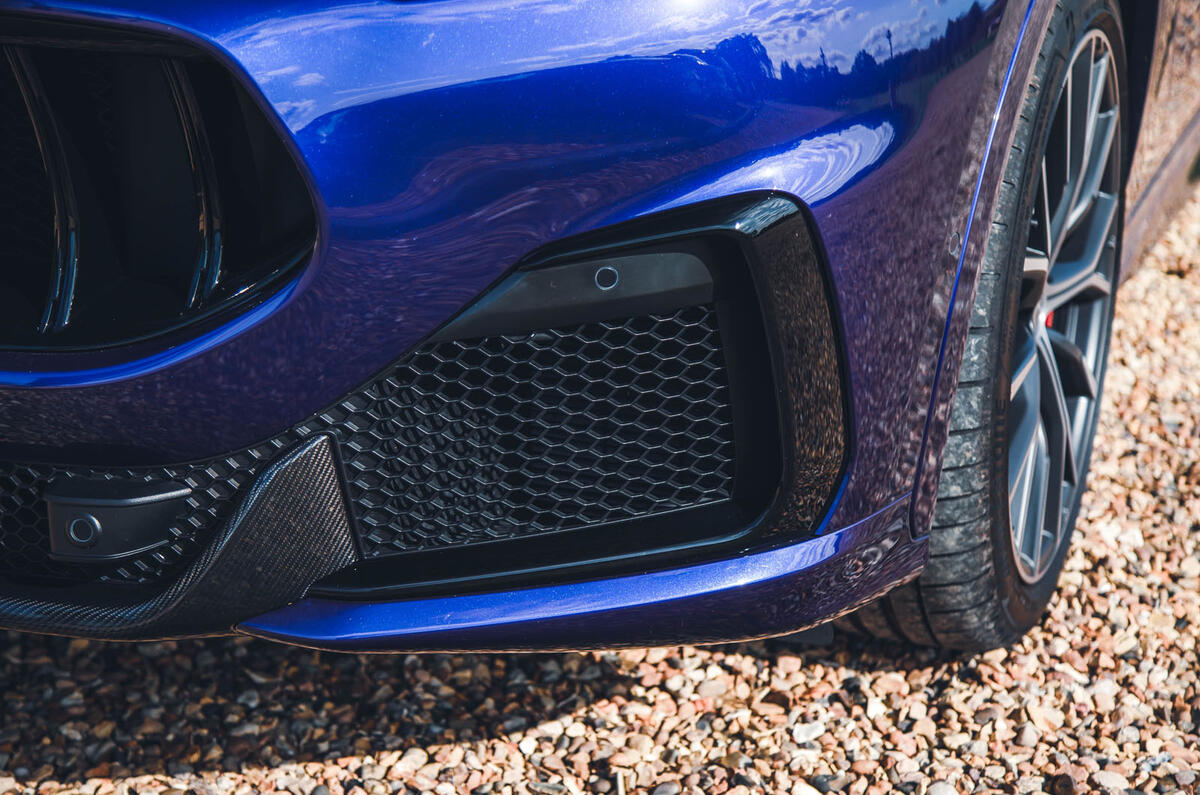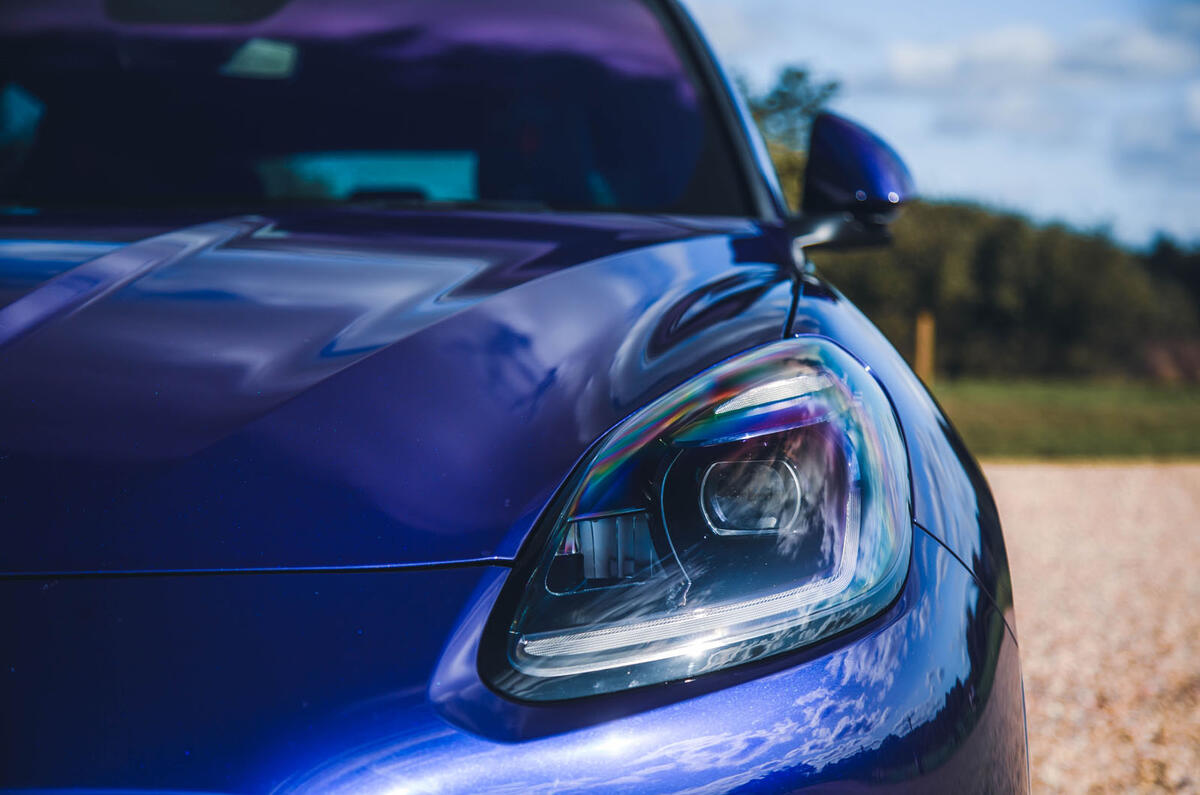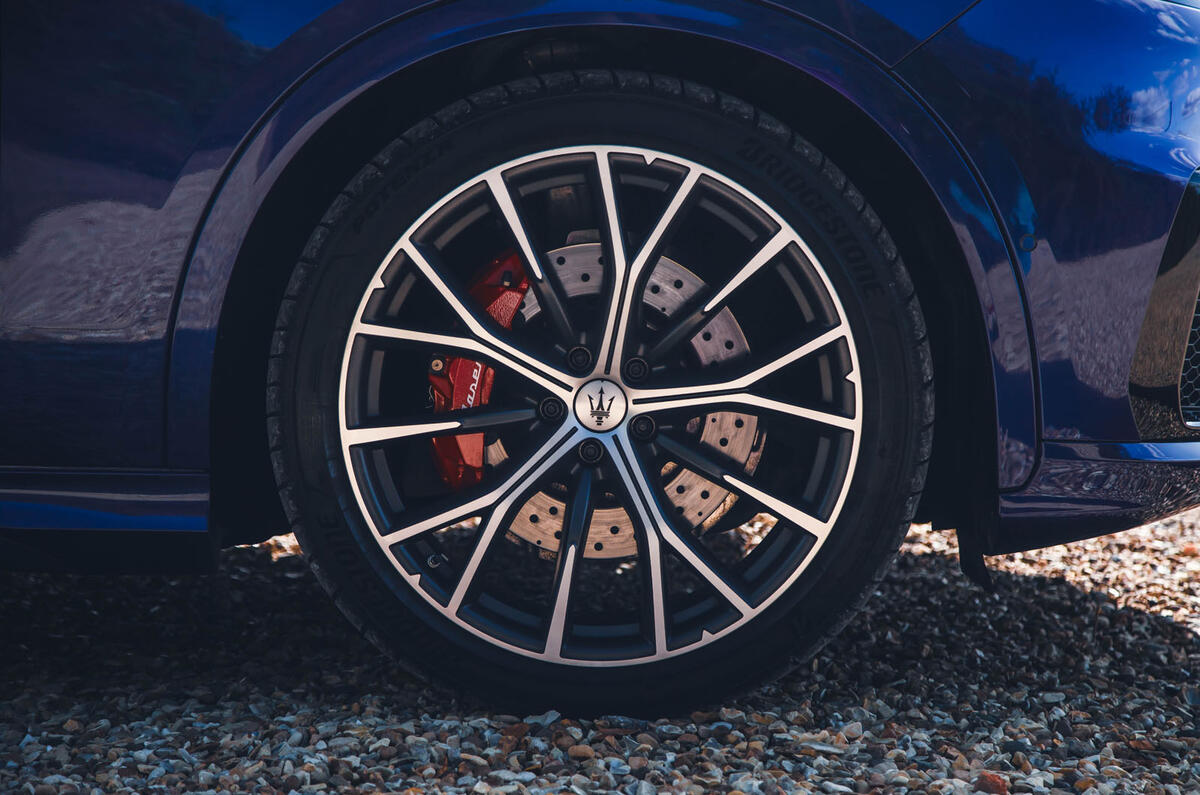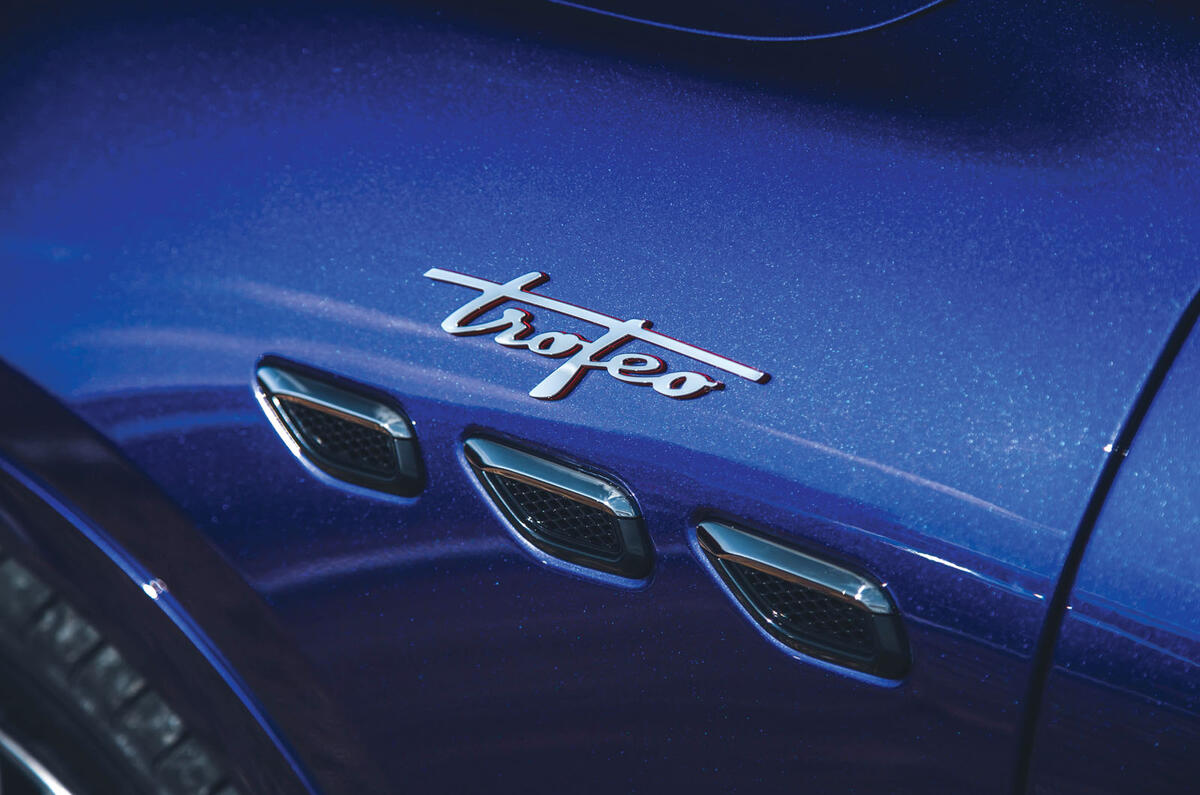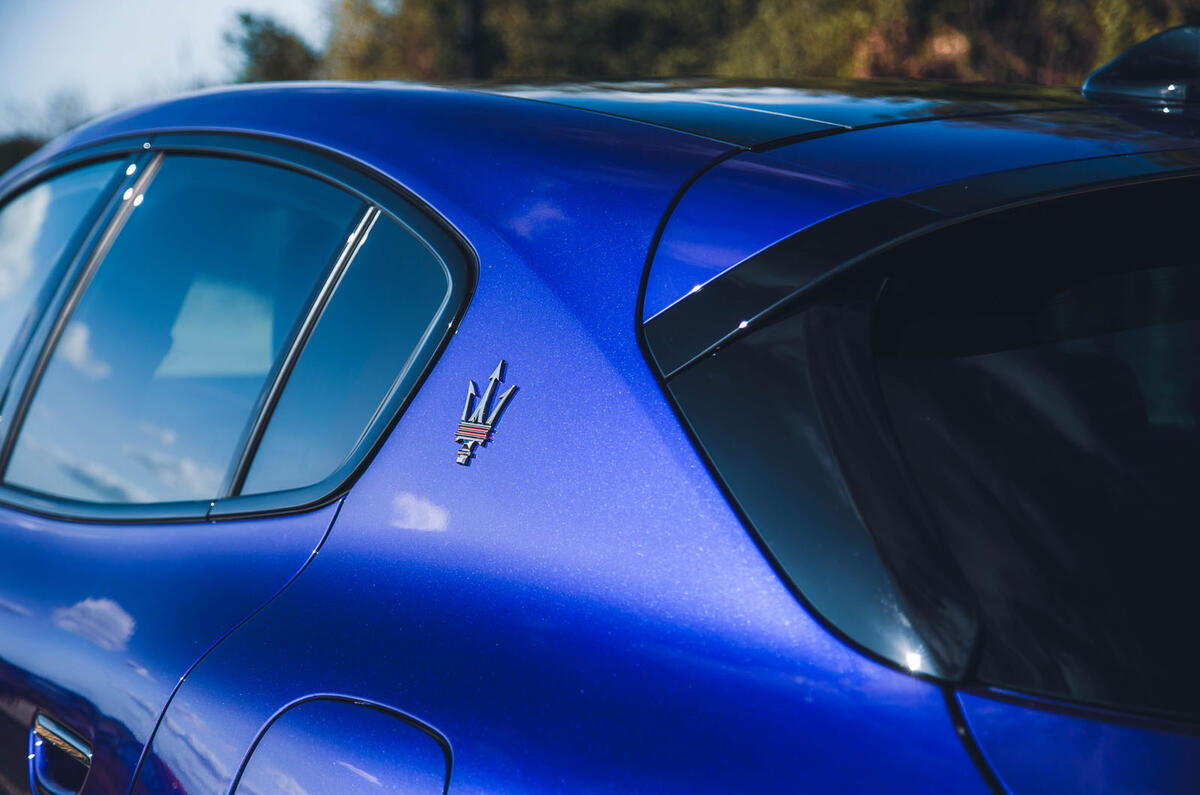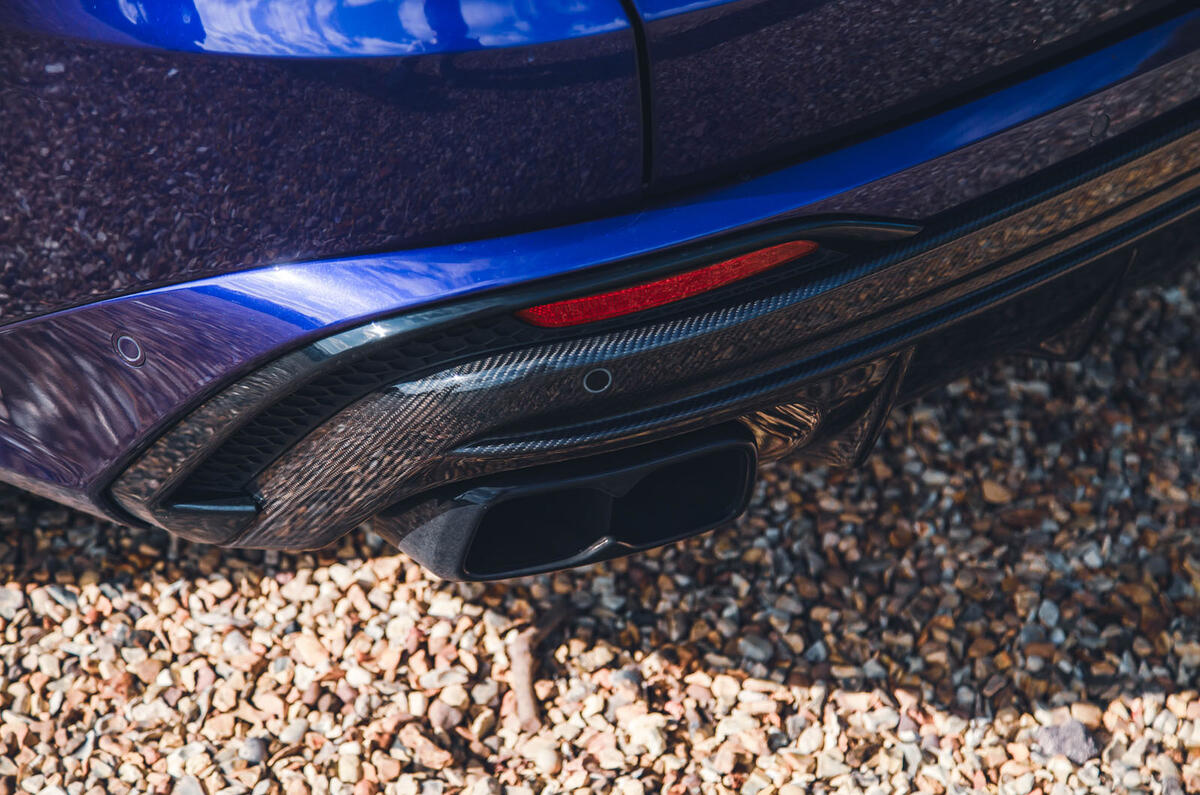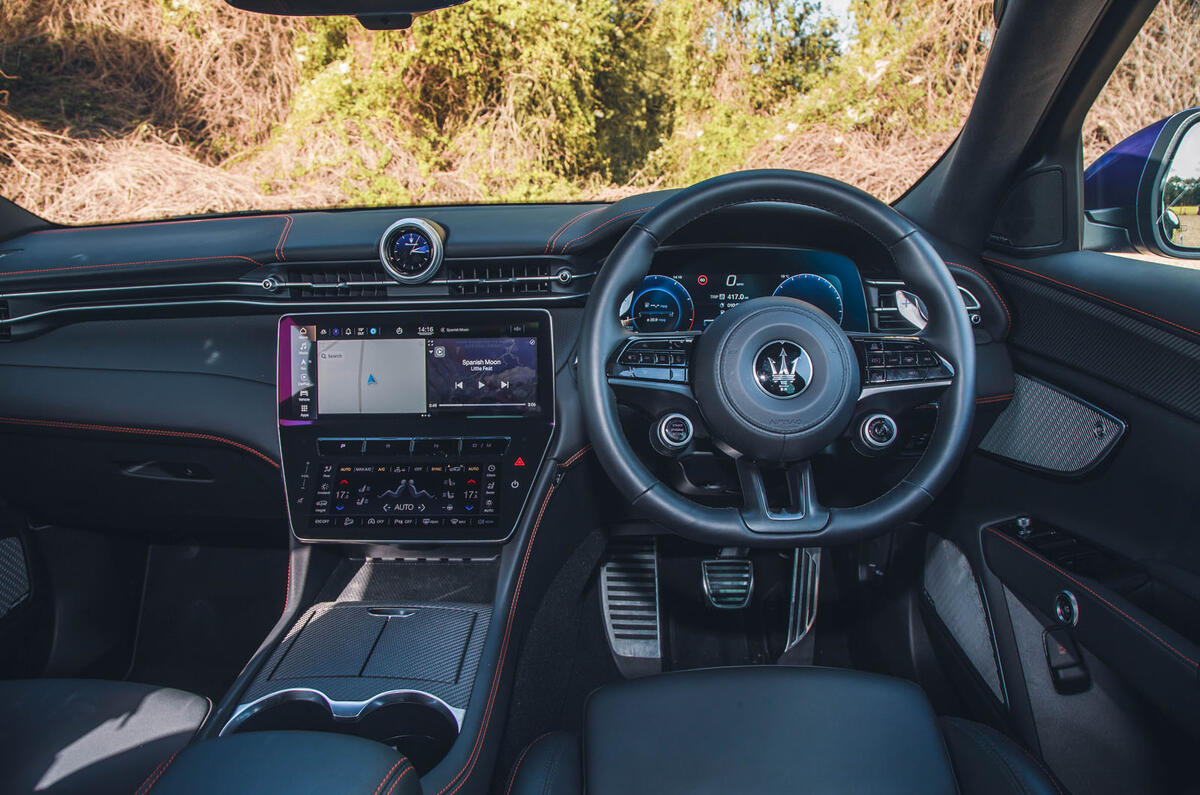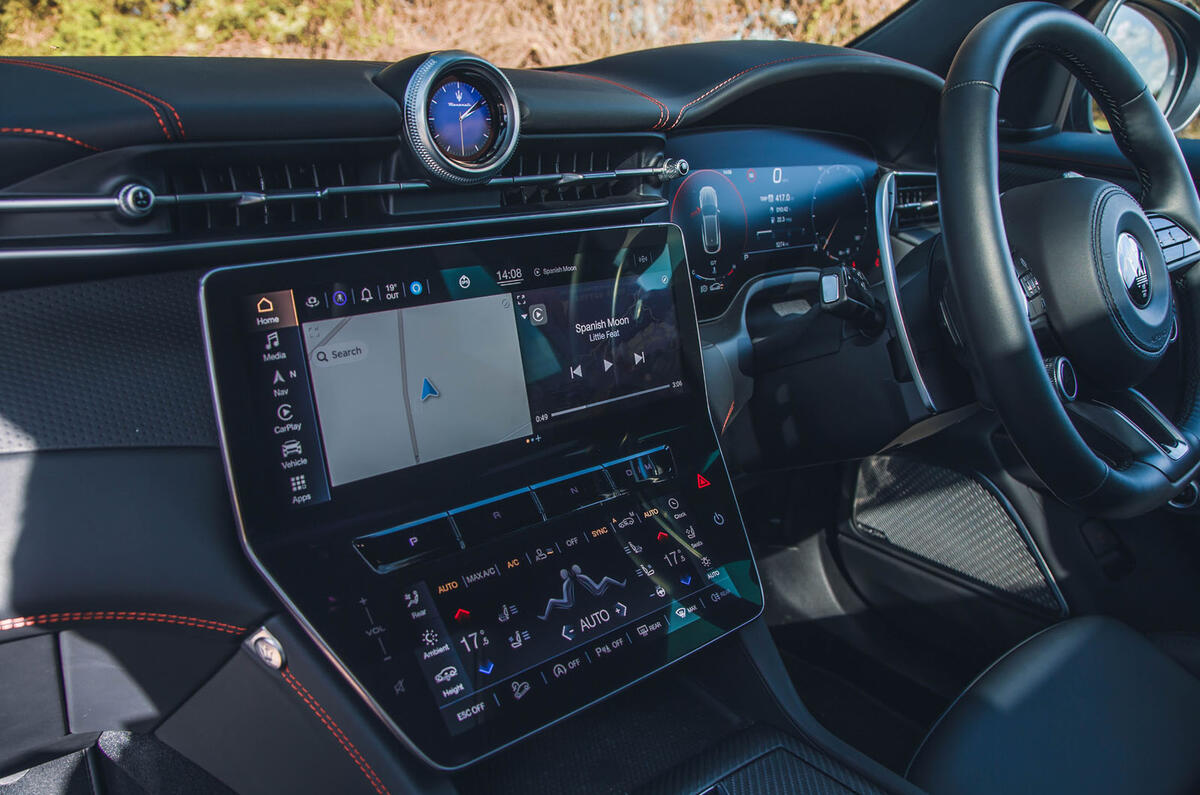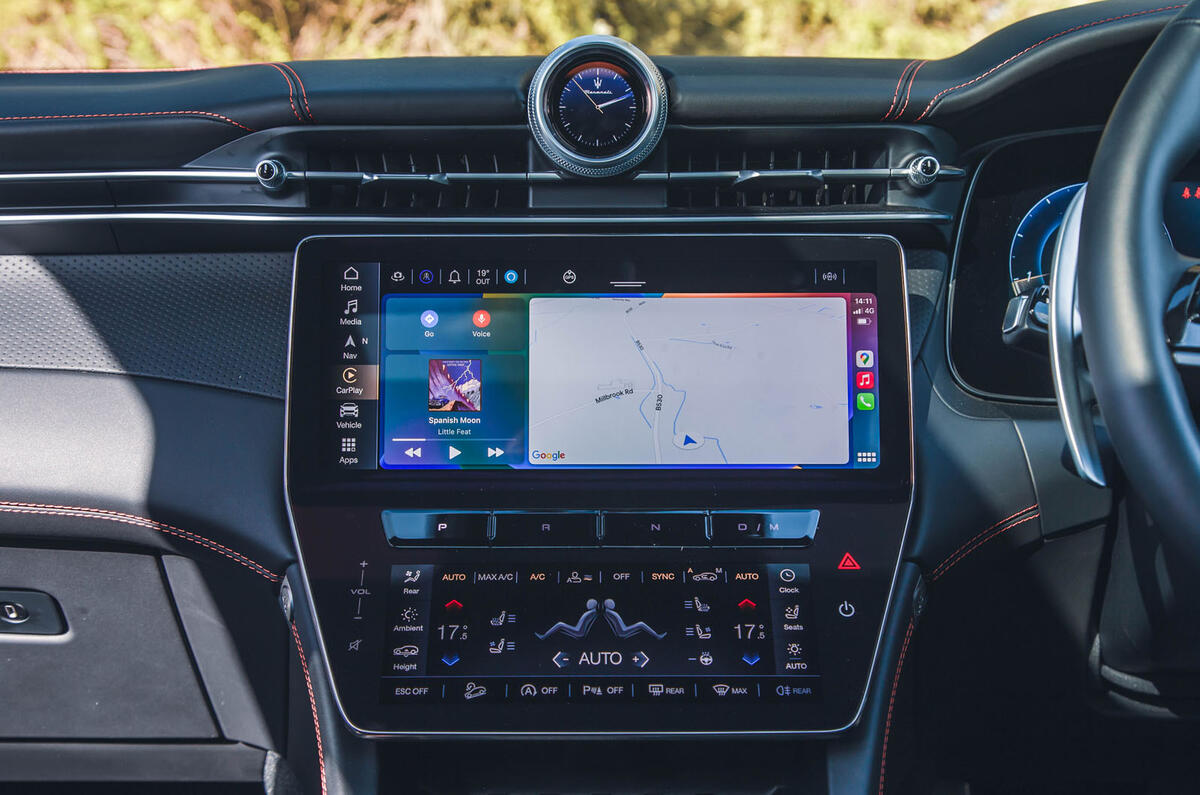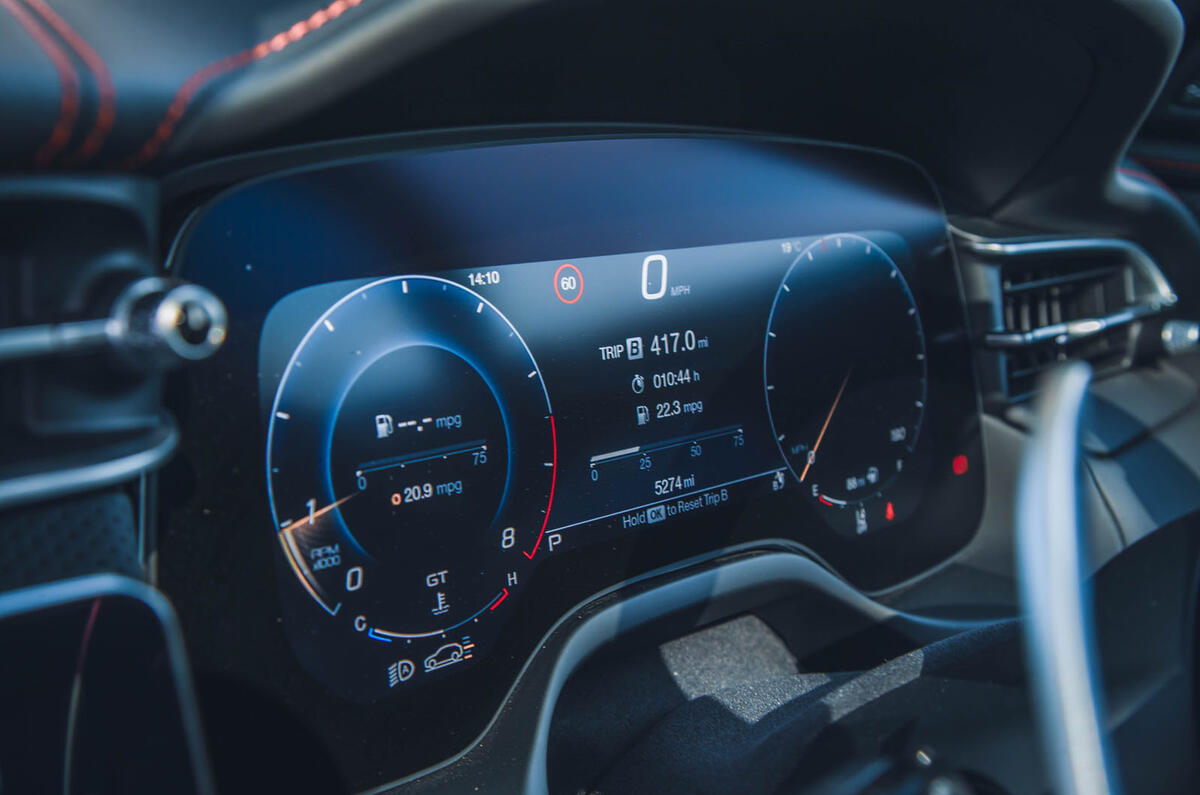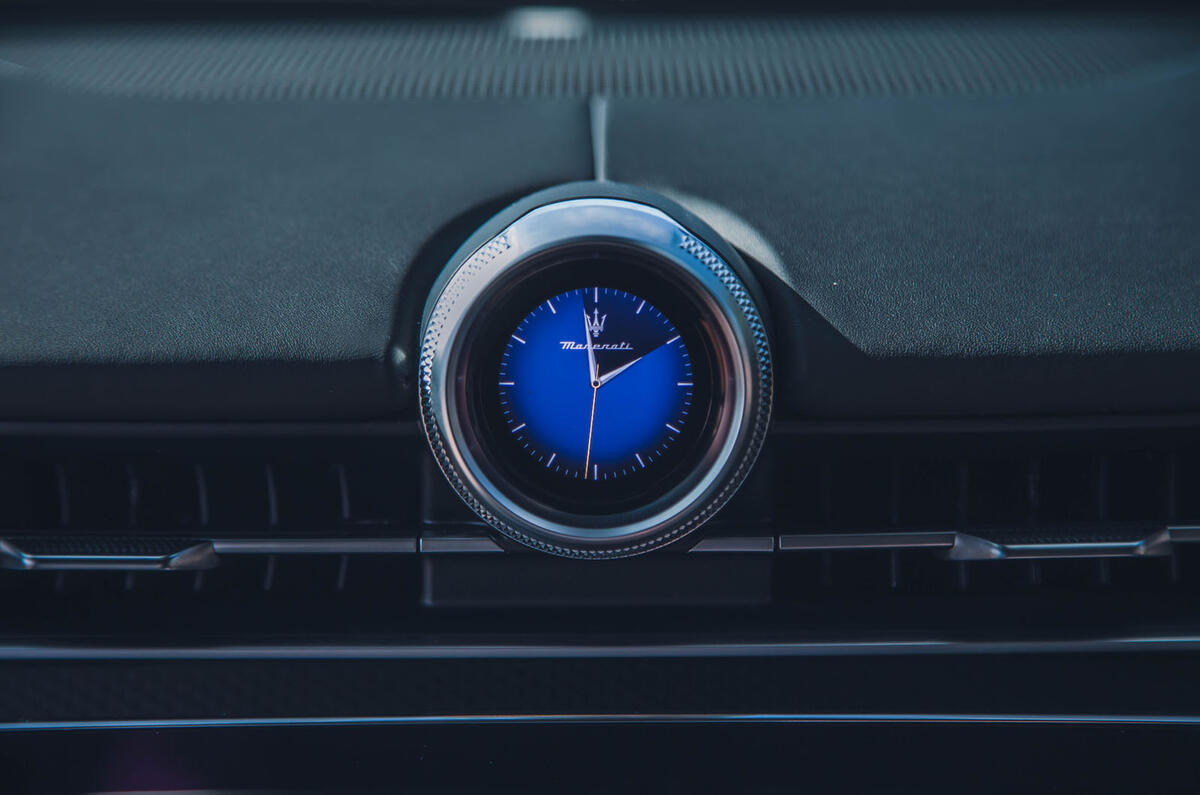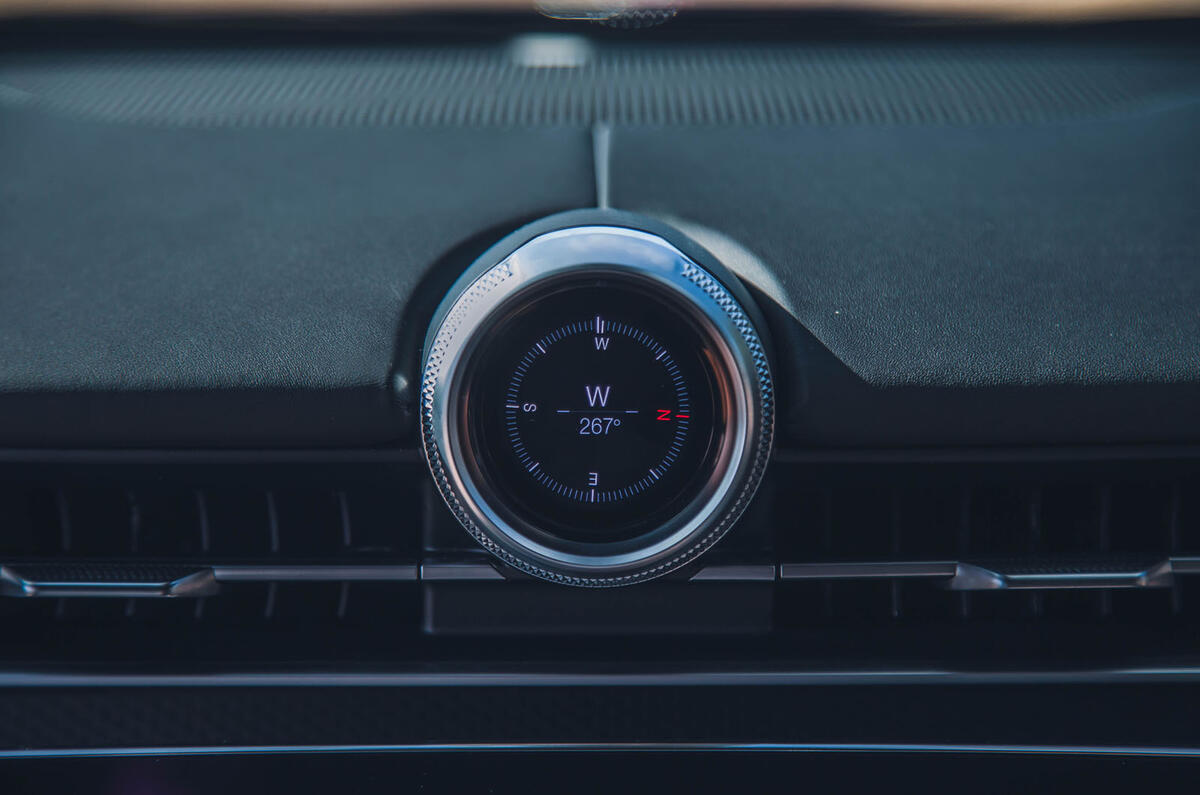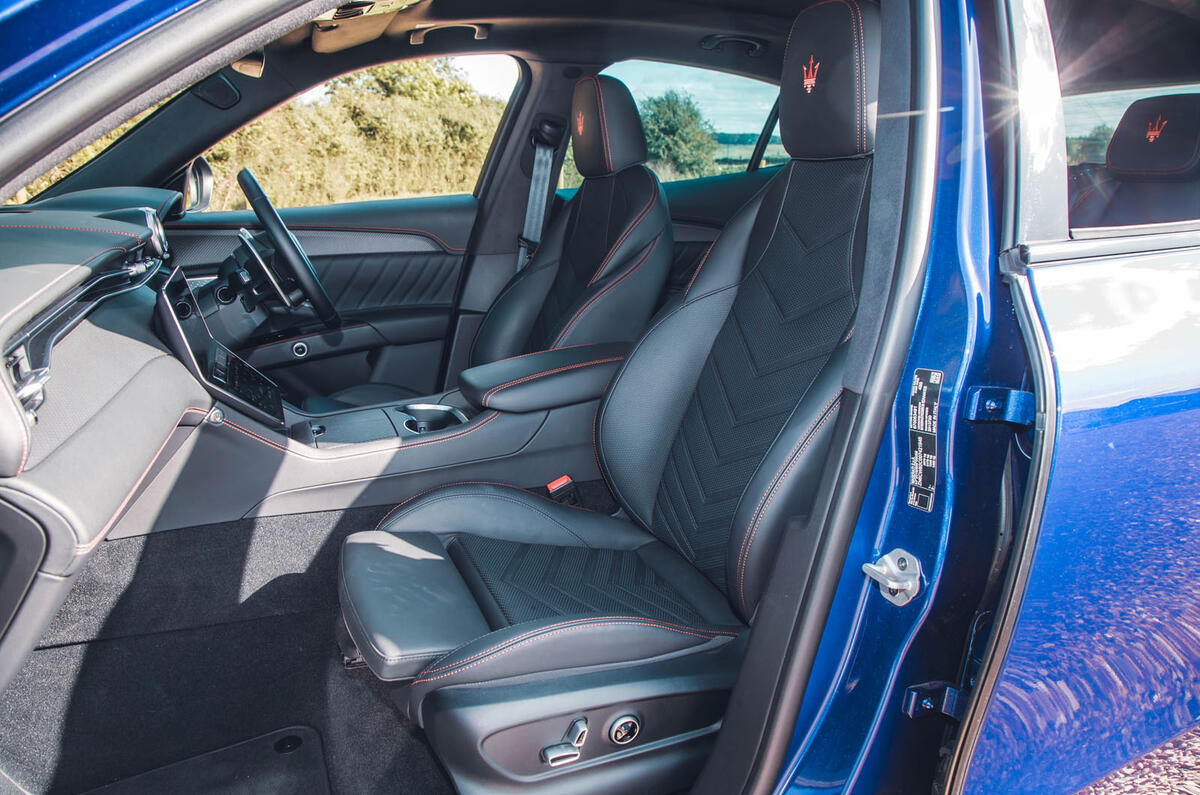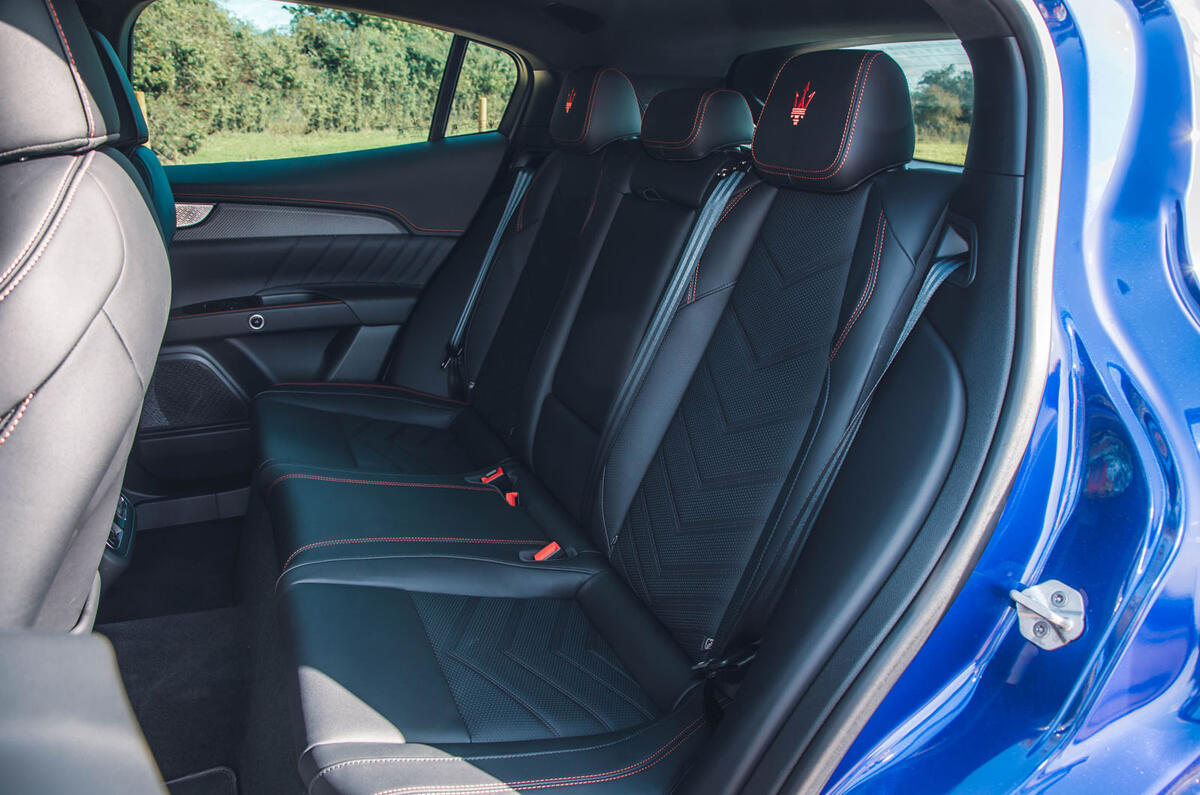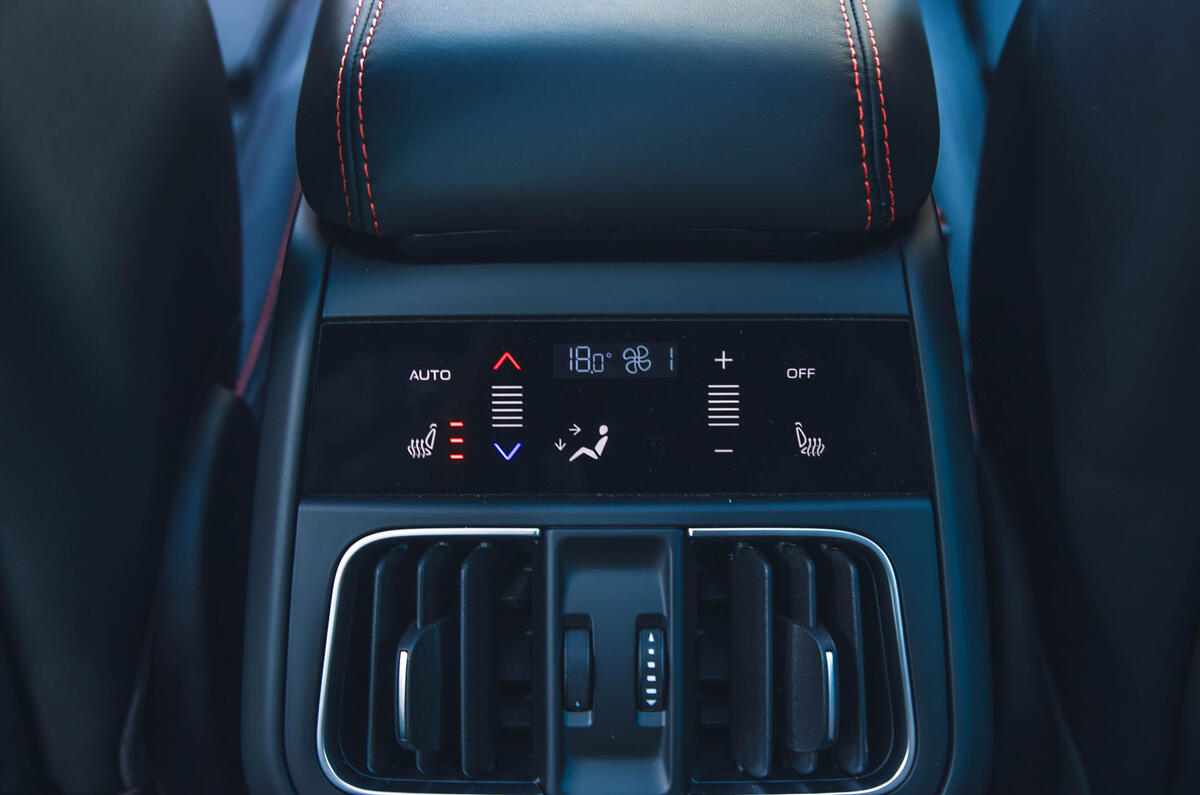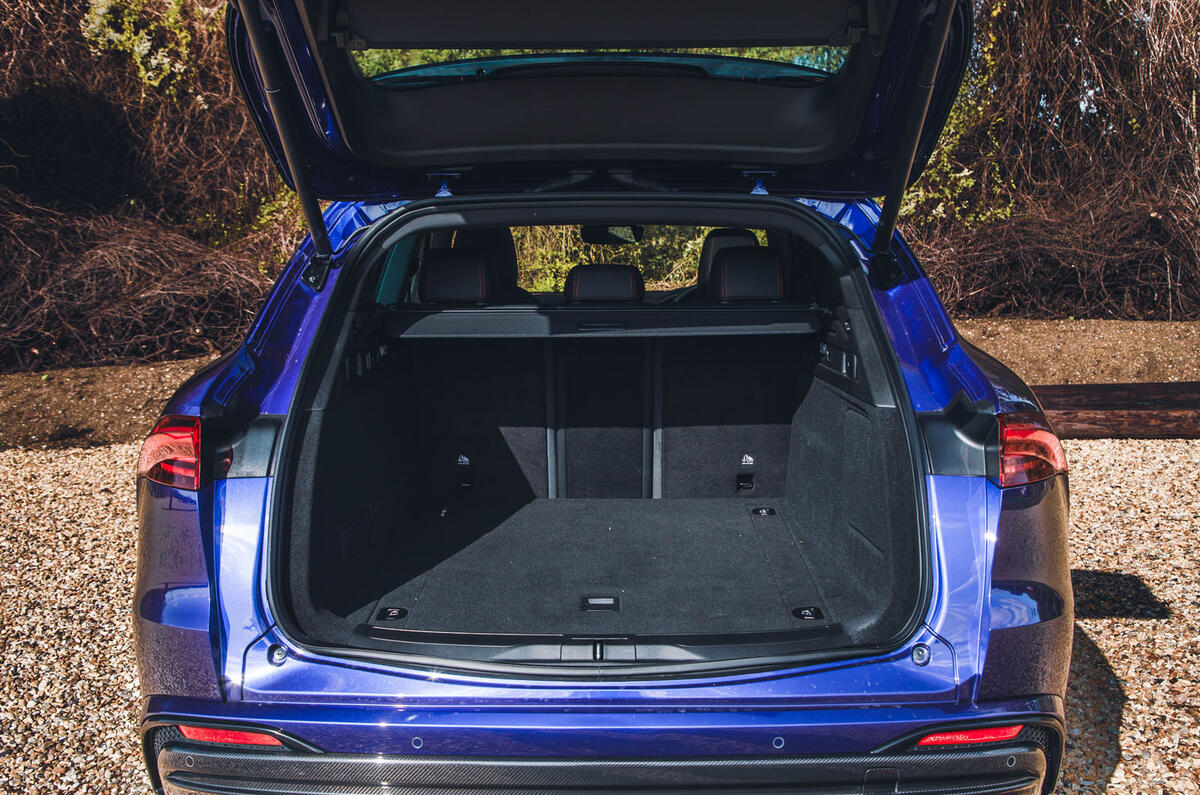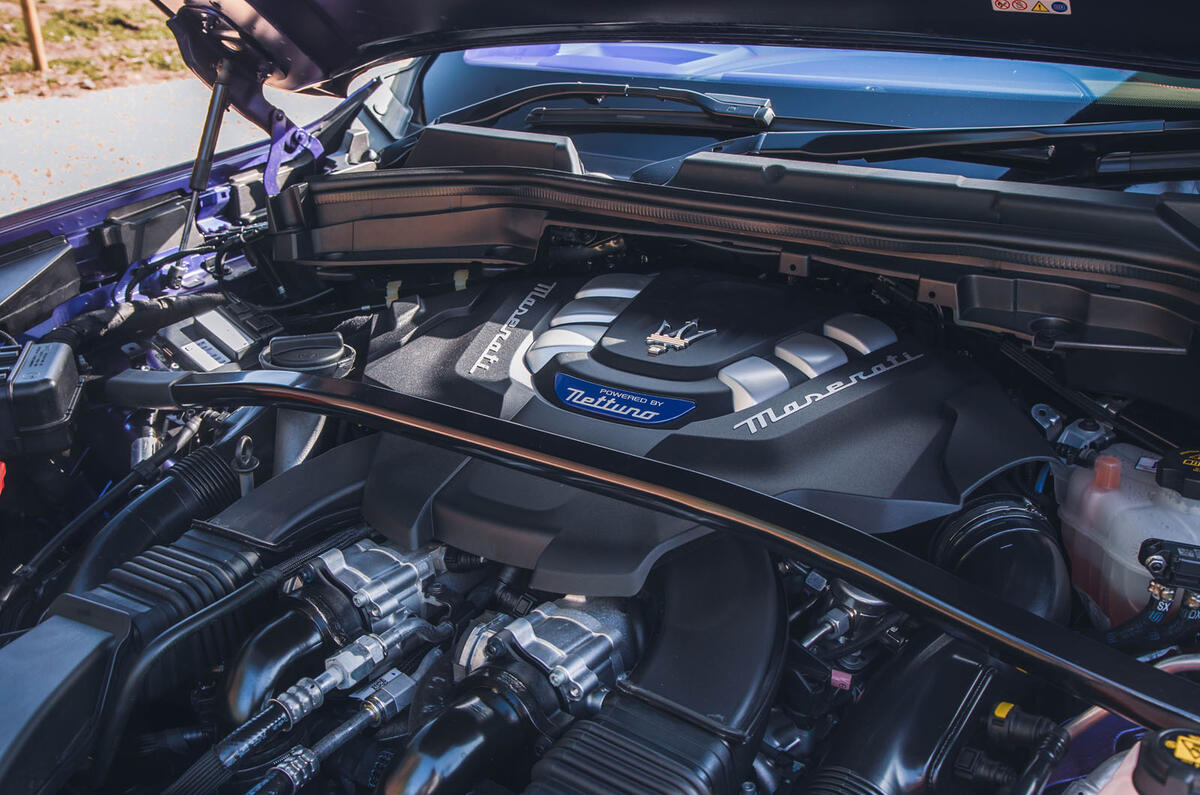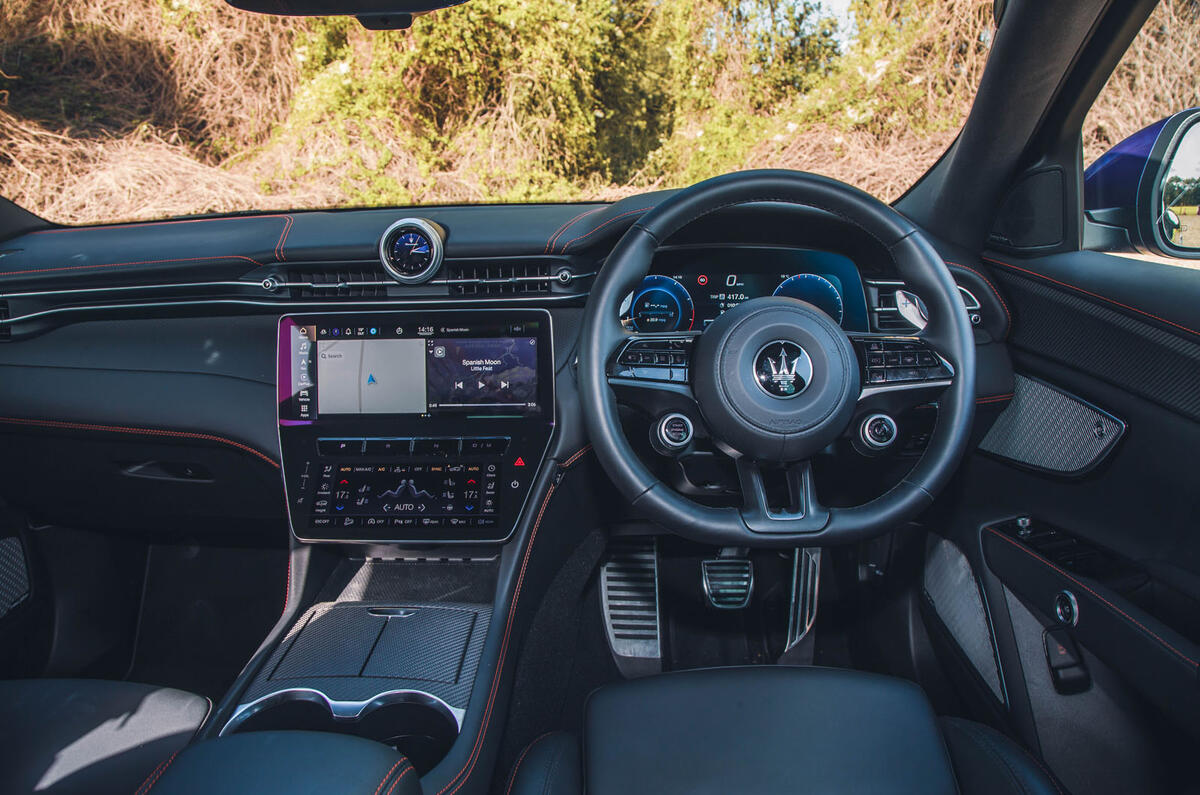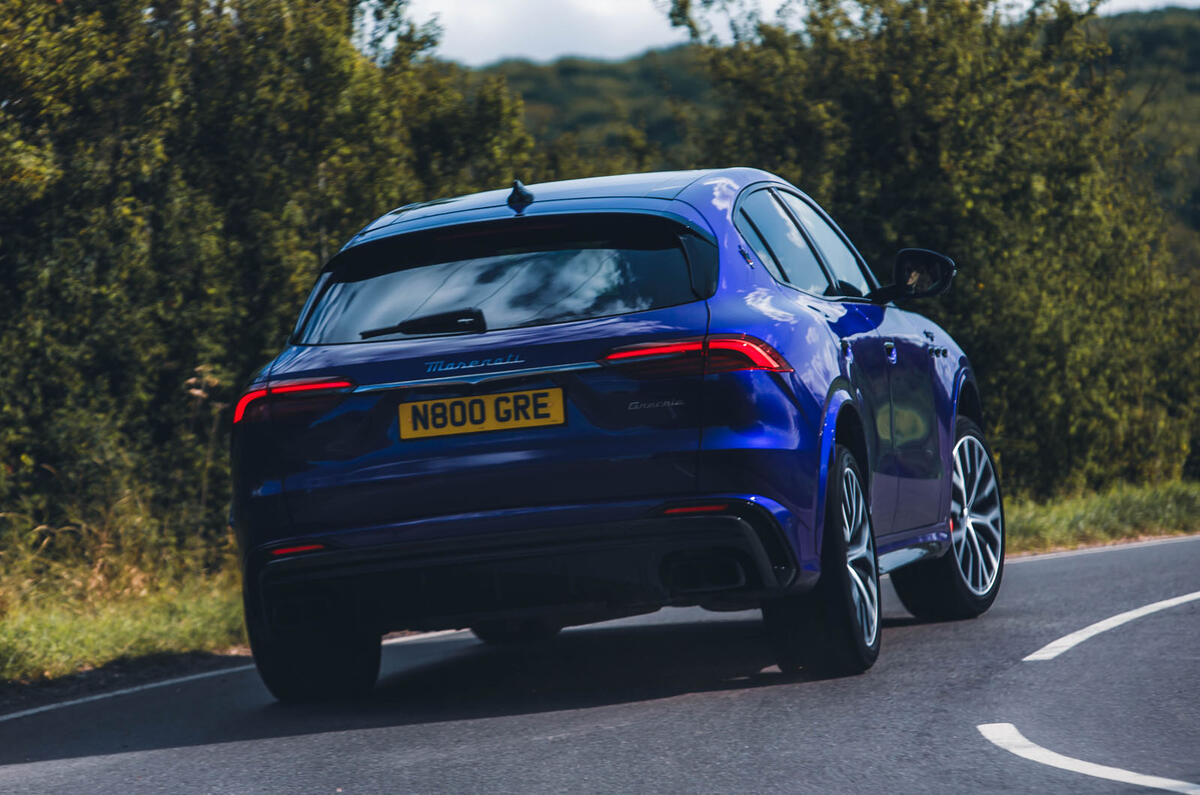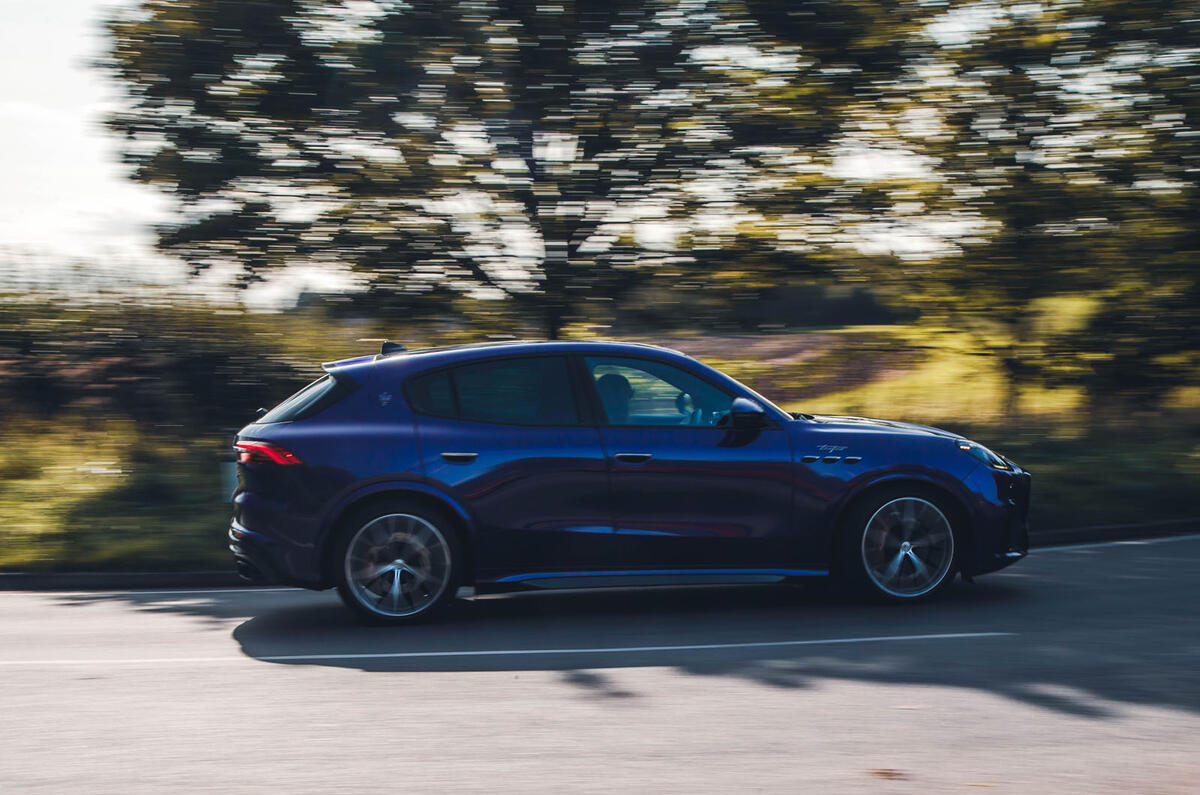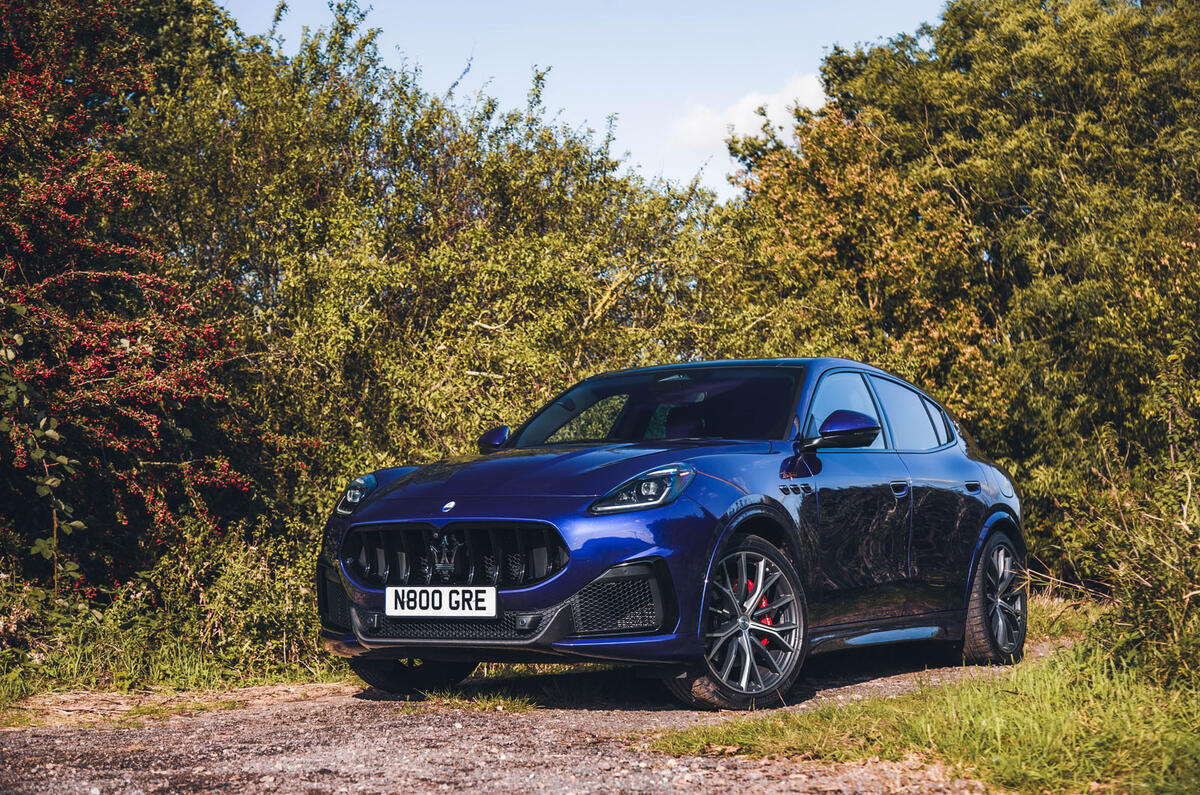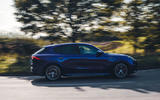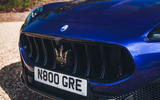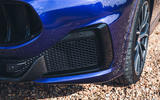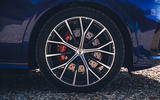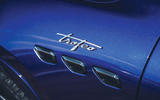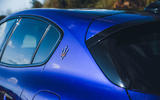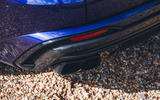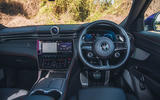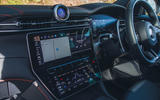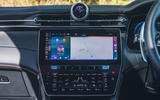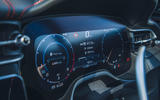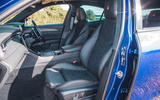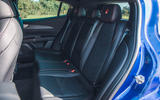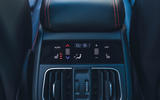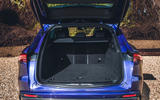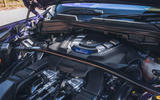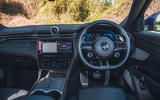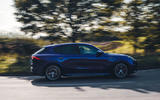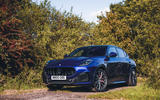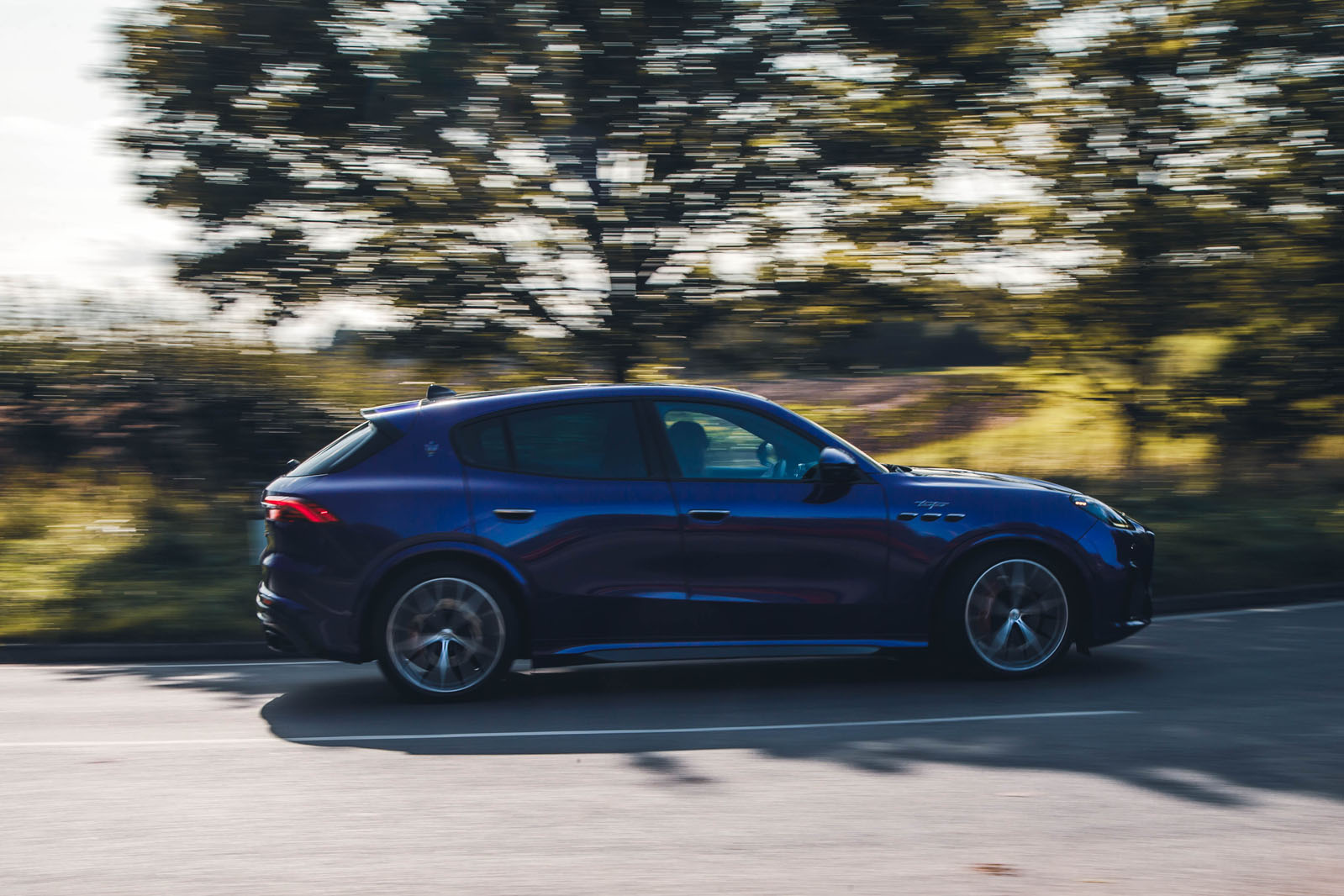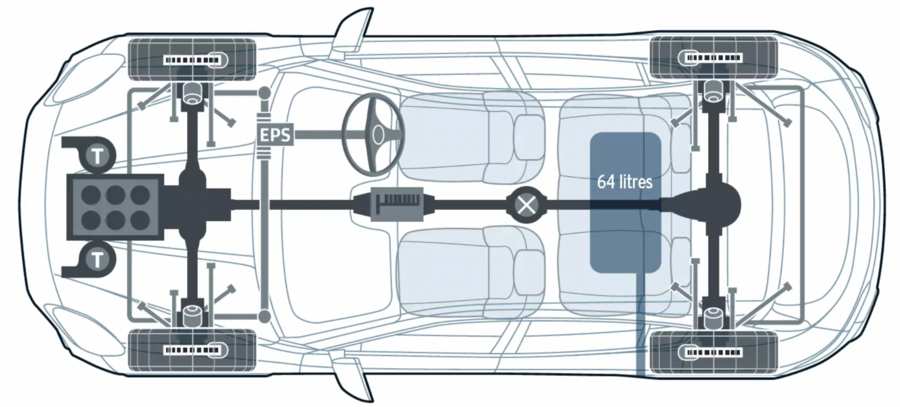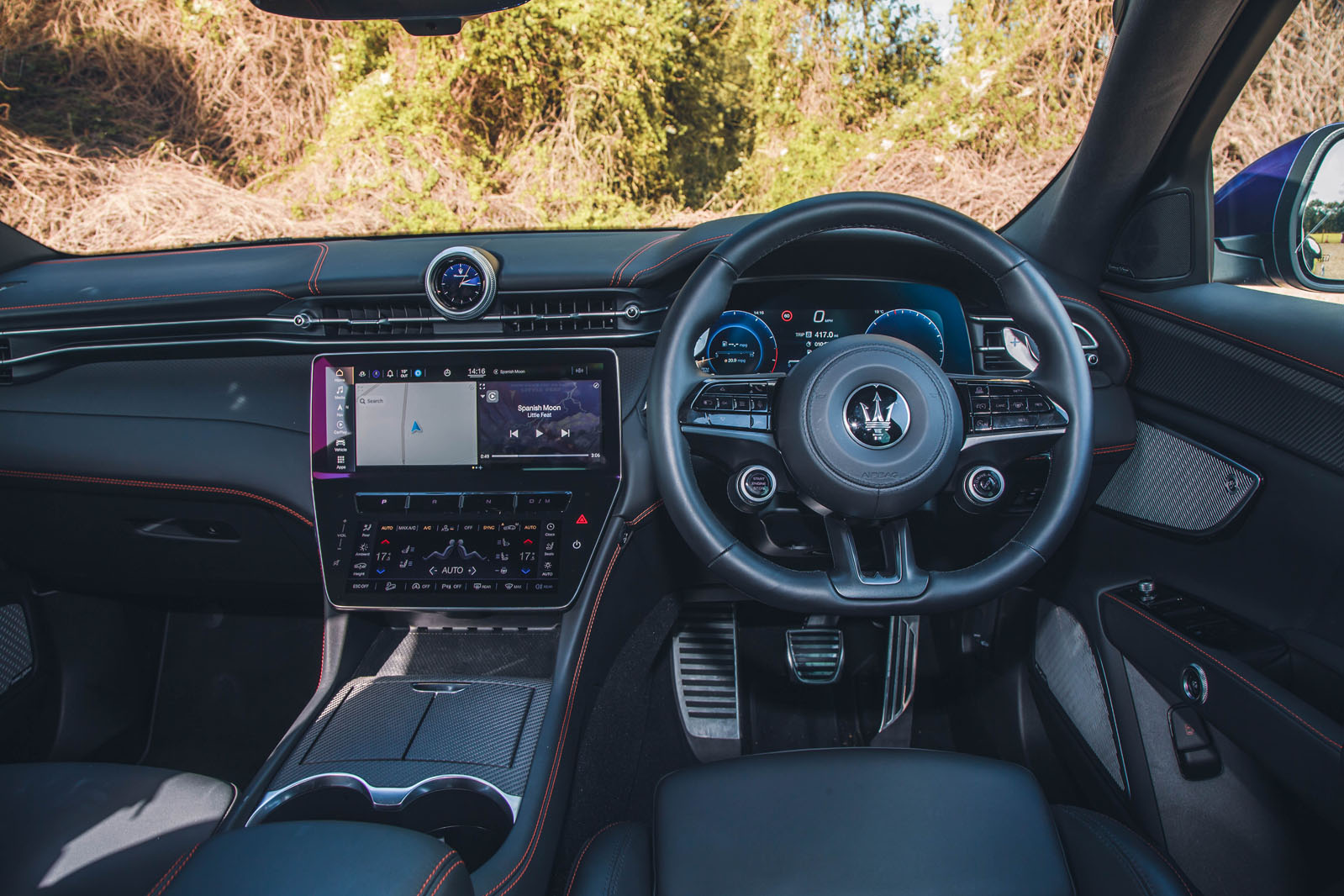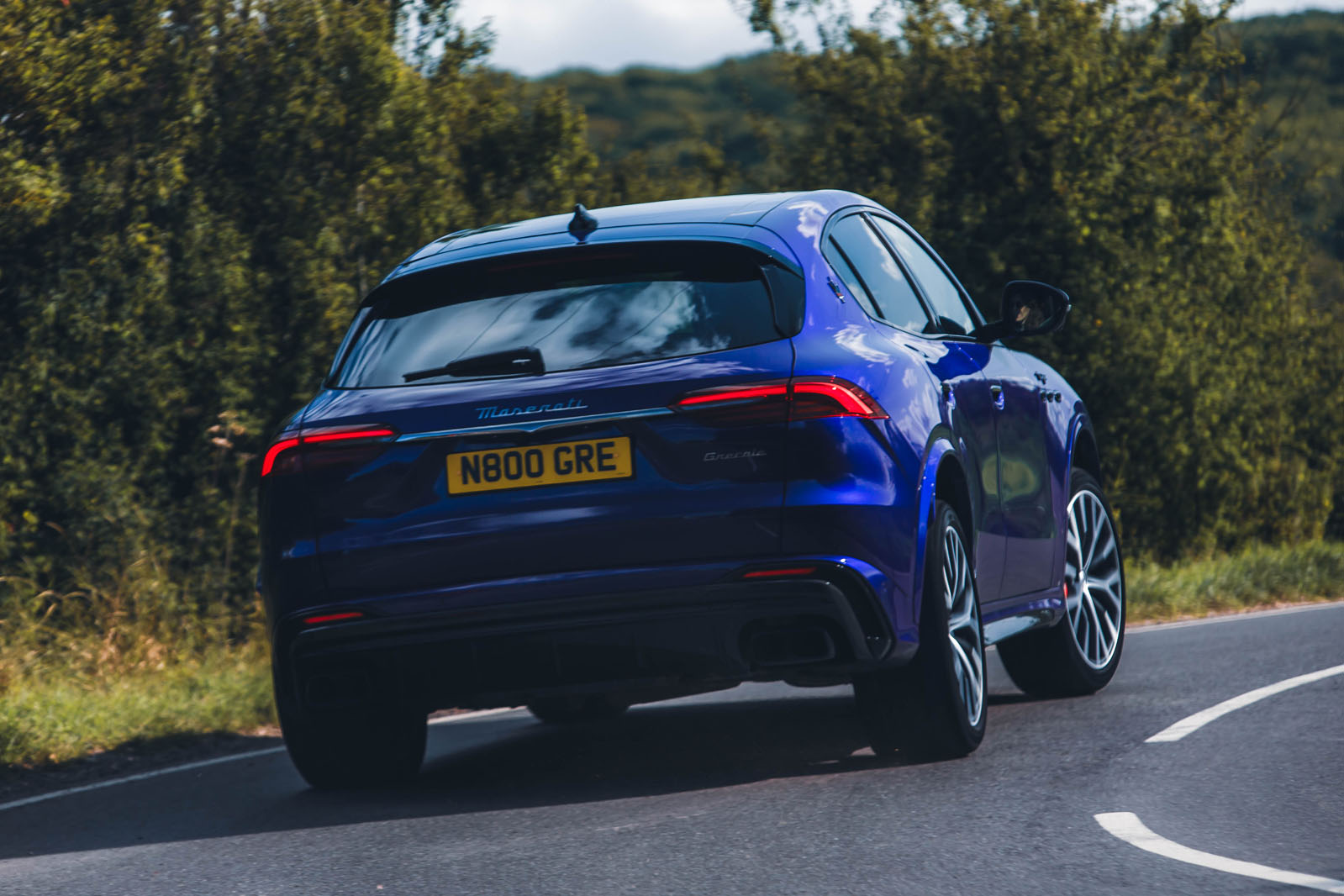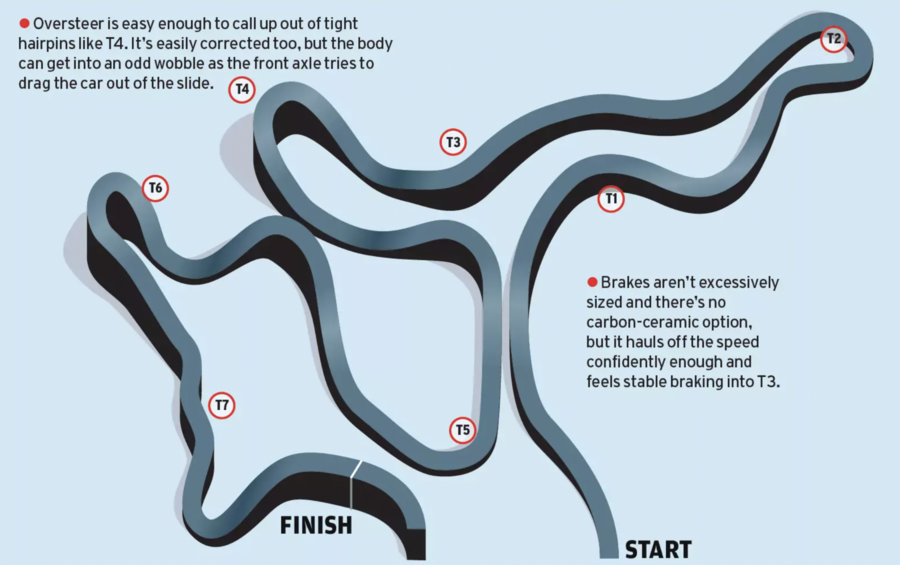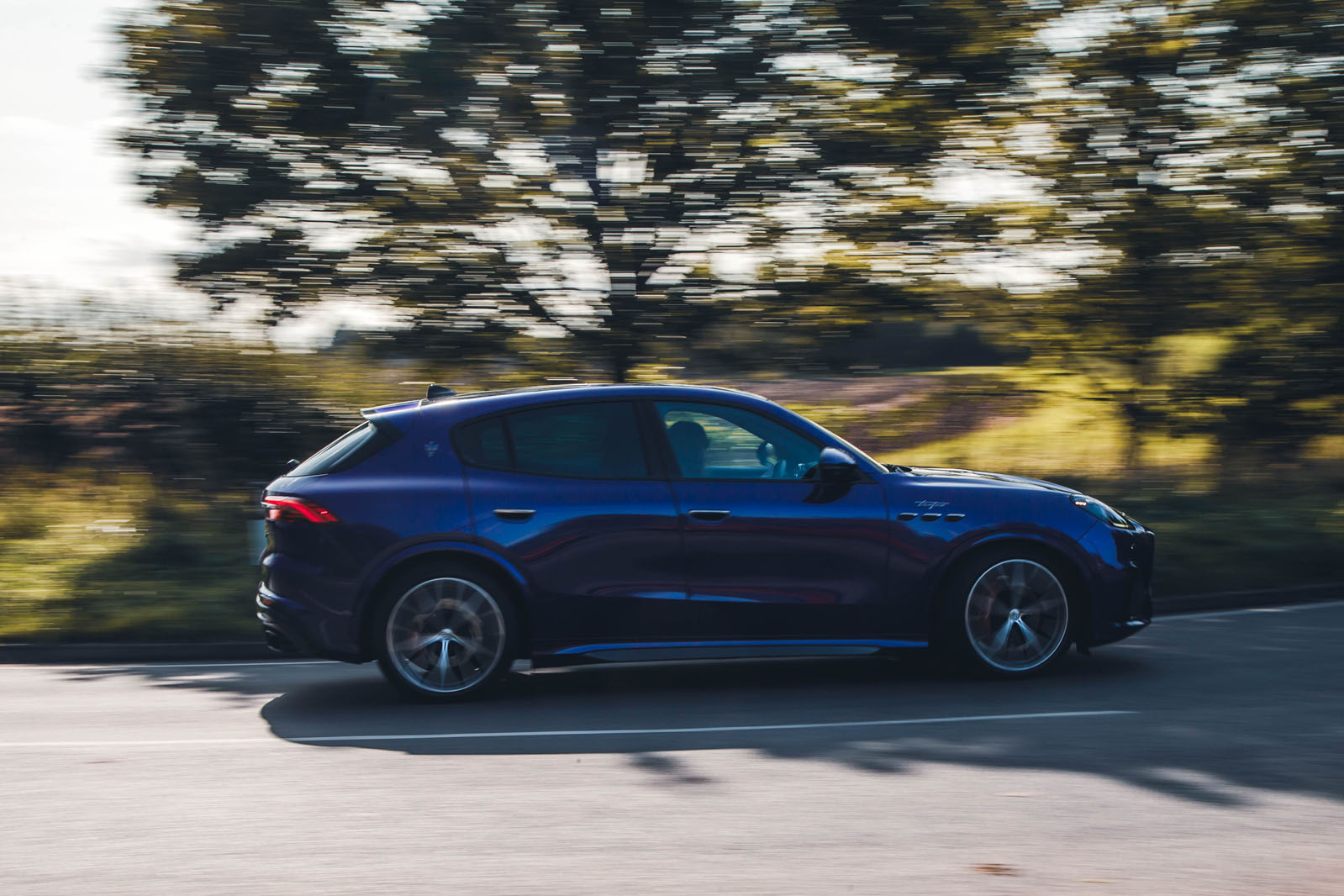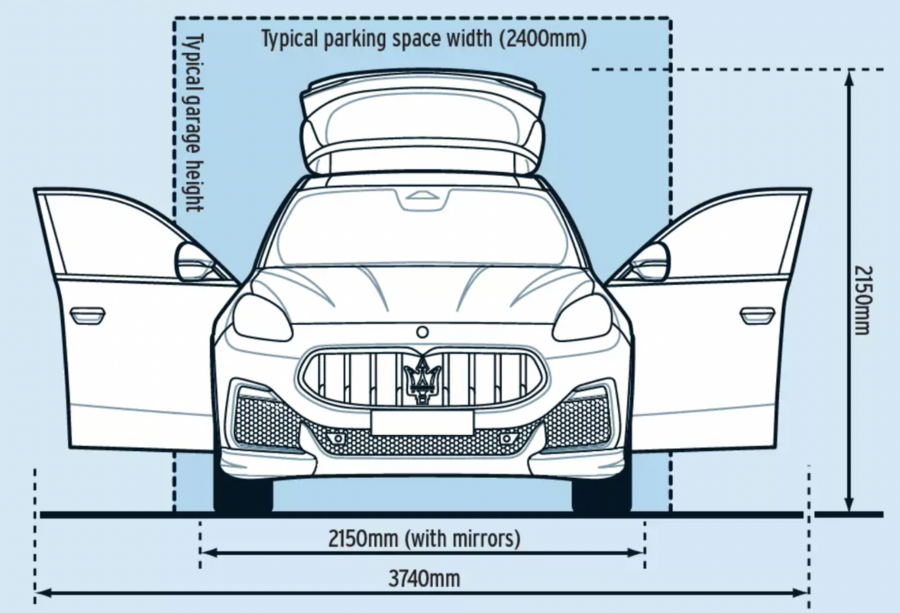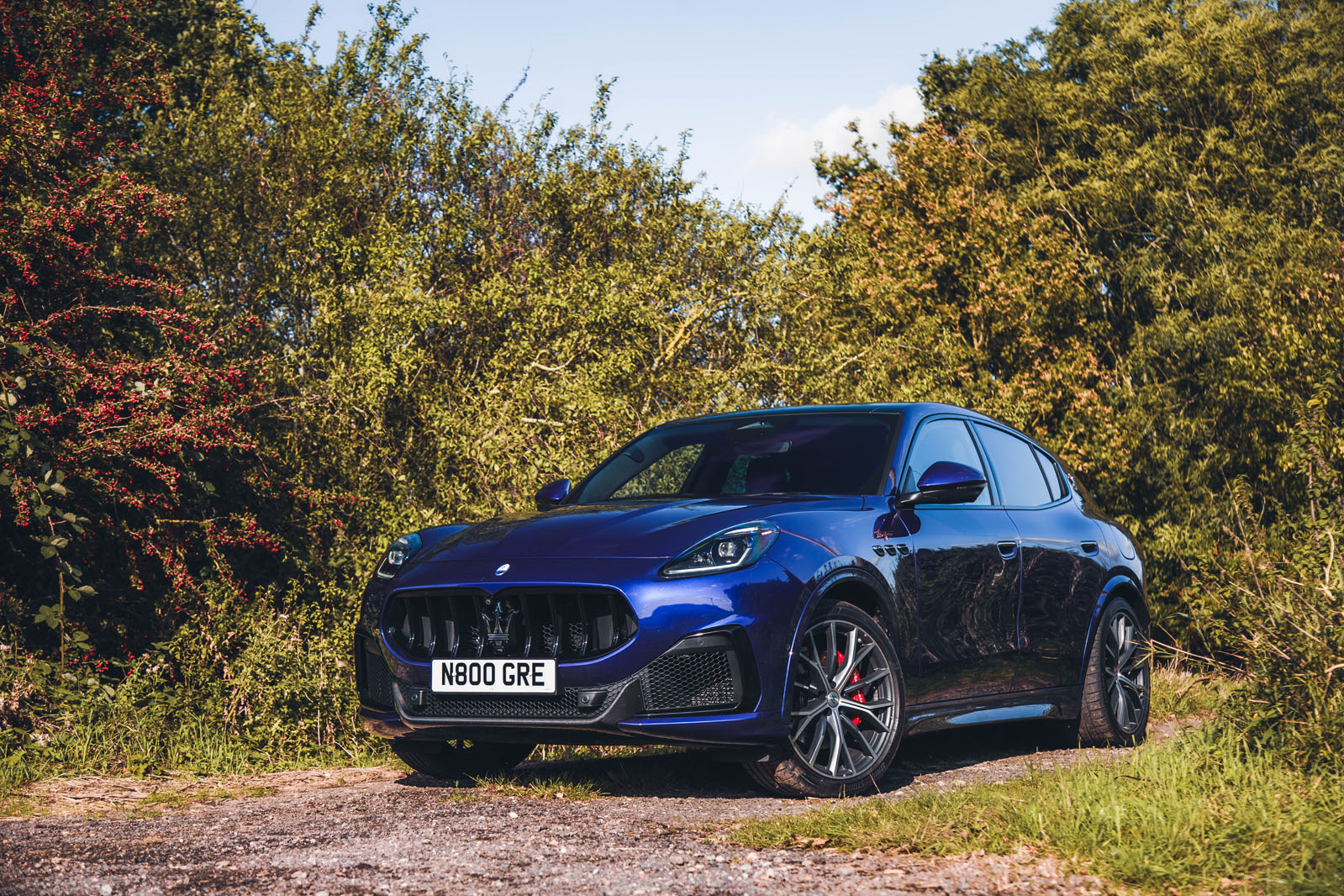The interior of the Grecale poses one important question: how much will owners of this luxury SUV care that more than a few frequently touched components are shared with cheaper cars like the Fiat 500?
It starts right when you open the door. The squeezy electronic handle – Fiat 500. The electronic button to get back out – same. The pedals and column stalks – Alfa Romeo. Multimedia screen – Fiat 500 again. And while those PRND buttons aren’t quite the same as in the Fiat, they sure have a family resemblance and possibly feel slightly less satisfying.
It’s not that these parts feel low-rent, and in fairness Bentleys have Audi stalks too, but a Grecale owner might have a Fiat 500 on the side and wonder if that family connection couldn’t have been better disguised.
Thankfully, the Grecale has plenty of charm elsewhere to win you over. The interior design is restrained and handsome, and the materials are top-notch, with a few different types of soft leather, neat stitching and plenty of real metal.
There are some interesting original touches as well. Glossy carbonfibre can look a bit naff, particularly in luxury cars, but our test car’s trim was an unusual matt carbon that’s rough to the touch, making it quite an appealing alternative to wood. Maserati has also reinterpreted the classic analogue clock atop the dash. It has turned it into a round screen that can display the classic clock, among other functions, and notifications.
This is a 2020s Maserati, so it wants to impress with its technology as well and follows the modern trend of a fully digital gauge cluster. It’s clear, easily navigable and moderately customisable but not especially memorable.
Maserati has gone digital for the secondary controls as well, giving you a smaller secondary screen underneath the main infotainment unit that lets you adjust the climate as well as the ride height for the air suspension, the lights, parking sensors and more. It’s very Audi and works quite well but, like the instruments, there’s nothing intrinsically Maserati about it.
The tagline for the Grecale is ‘The Everyday Exceptional’, because 523bhp or not, this will be primarily an everyday family car, and in that respect the Grecale does fairly well. The drive selector buttons free up space in the centre console, which has no shortage of cubbies and cupholders.
Being longer than rivals gives the Grecale an edge in interior space too. Six-footers would be quite comfortable in the rear seat, with decent head room, more leg room than in rivals and space under the front seats for their feet. They can bring all the luggage they want too.
If you want to maximise boot space, you’ll want the V6 Trofeo, because it has boot that is 35 litres bigger on account of not having to carry a 48V battery for the hybrid system.
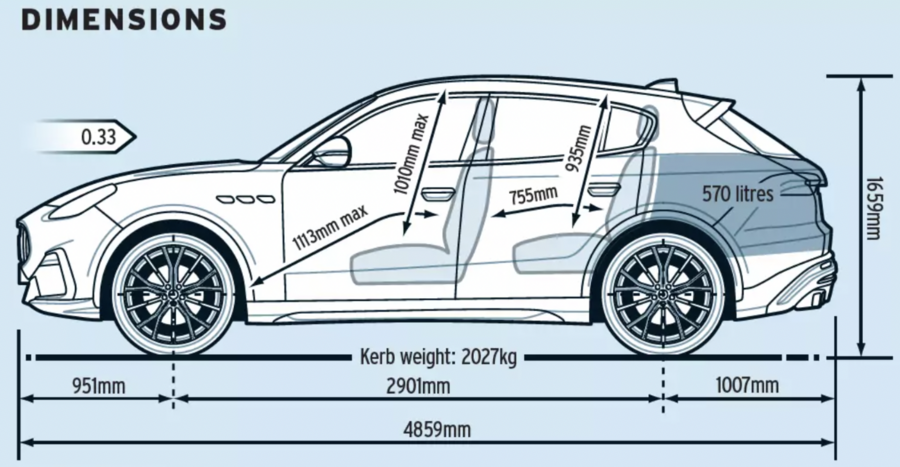
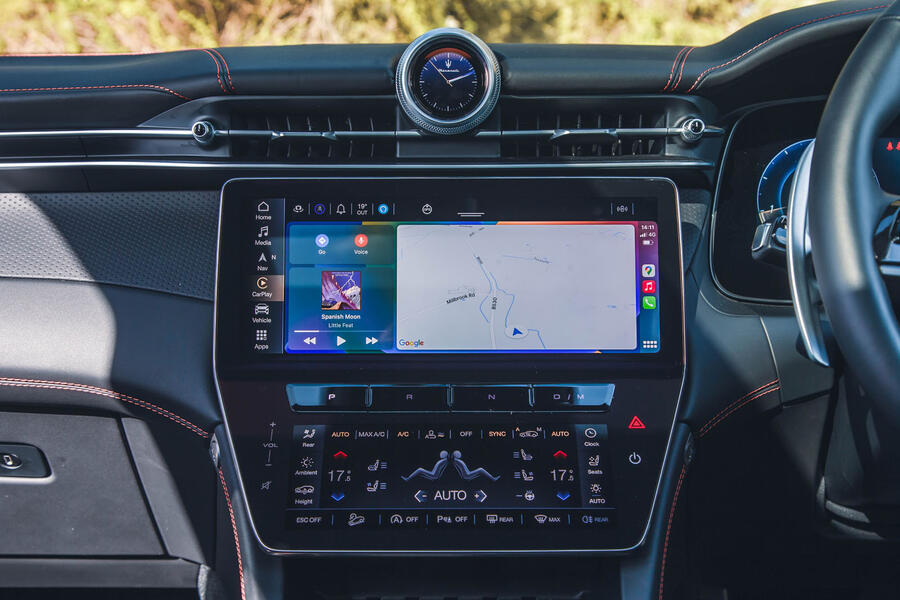
Multimedia system
Save for a few unique logos and settings, the Uconnect multimedia system in the Grecale is exactly the one you will find in various Fiats, Jeeps and Alfa Romeos.
On the one hand, that’s a bad thing because, unlike BMW’s and Jaguar’s systems, there’s nothing here that really reflects the brand identity. In fact, the fonts are very Fiat. On the other hand, it’s a perfectly pleasant interface that’s mostly logical and works smoothly.
Like Volvo’s and Renault’s system, it’s based on Android Automotive, though you couldn’t tell by looking at it. Uconnect does miss a trick by not offering Google Maps as the standard navigation system. The TomTom module that’s included instead is far inferior. Wireless Apple CarPlay and Android Auto are still included and are integrated well.
Our test car had the £2300 Sonus Faber 21-speaker hi-fi system. It comes with a good amount of configurability and sounds good but not exceptional.


